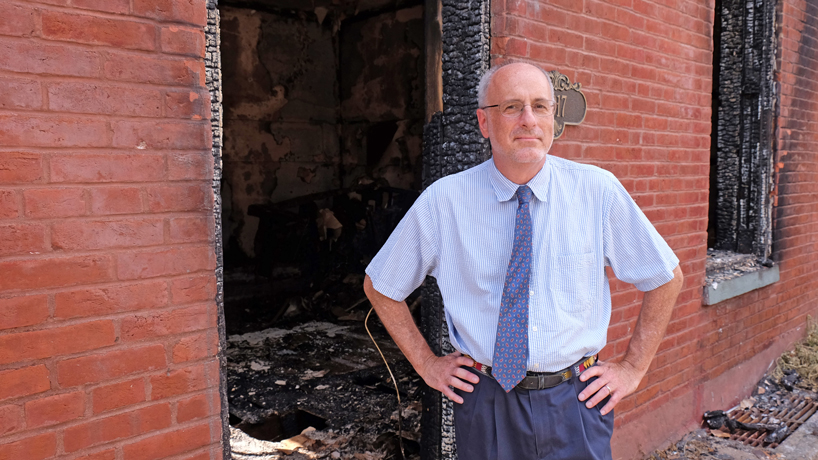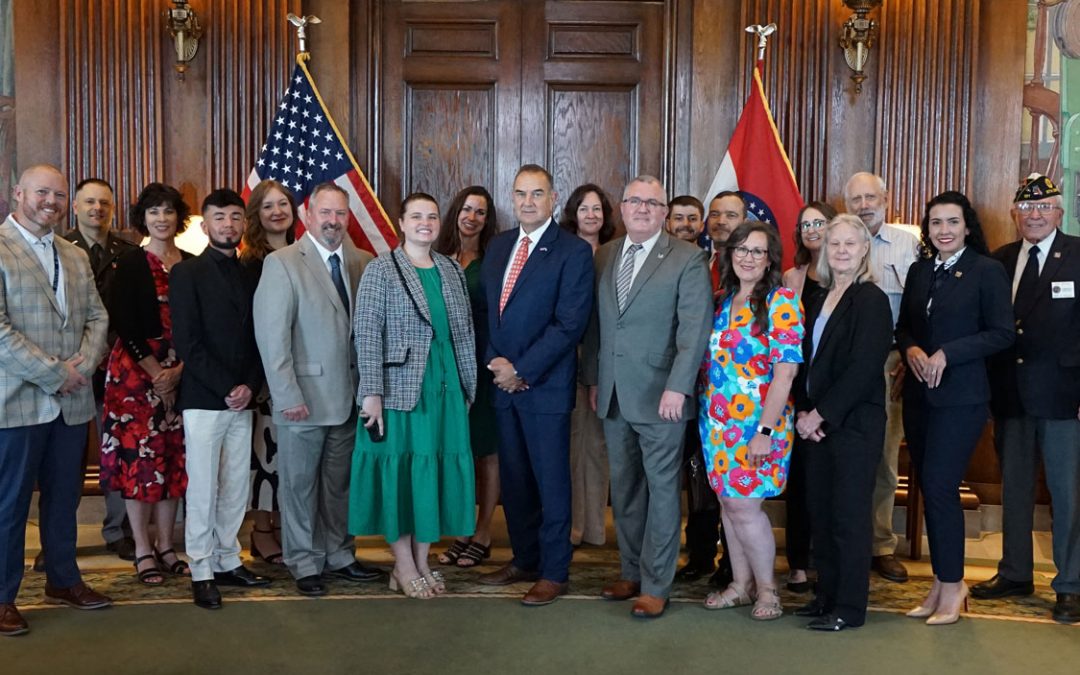
Andrew Hurley, professor of history at UMSL, will study St. Louis’ reaction to past natural disasters to help determine the best course of action for dealing with future problems related to climate change. His research is part of a consortium that received a $20 million grant to study climate variability. (Photo by August Jennewein)
Using historical analysis and St. Louis as a case study, University of Missouri–St. Louis history Professor Andrew Hurley will aim to enhance urban communities’ ability to address issues related to climate change. Hurley is the principal investigator for the UMSL portion of a multi-institutional project that has been awarded a $20 million grant to study climate variability and its potential agricultural, ecological and social impacts in Missouri.
“Over two centuries, St. Louis has grappled with floods, tornadoes, fires, epidemic disease and other natural disasters,” Hurley said. “Despite this, St. Louis has proven resilient and remains a major metropolis.”
Hurley’s research on urban resilience in historical perspective will be broken down into three phases over five years. The first phase (years one and two) will involve establishing the historical dynamics of urban resilience in St. Louis. Community engagement will be the focus of phase two (years three and four), and the final phase (year five) will involve building community capacity.
“We will take a close look at how St. Louis has historically responded to these disasters – what worked, what didn’t and the long-term impacts of these decisions,” he added. “The goal for the gathered research is that it will help with the creation of action plans for our community partners, organizations concerned with water and climate change issues.”
“The Missouri Transect: Climate, Plants and Community,” a five-year project, received funding from the Experimental Program to Stimulate Competitive Research. The National Science Foundation‘s EPSCoR program was initiated by Congress to support fundamental research, education in the STEM fields (science, technology, engineering and mathematics) and work-force development in areas relative to the economy.
Participating institutions in the overall climate variability project include all four University of Missouri System campuses – UMSL, University of Missouri–Columbia, Missouri University of Science and Technology in Rolla and University of Missouri–Kansas City – the Donald Danforth Plant Science Center in Creve Coeur, Mo., Washington University in St. Louis, Lincoln University in Jefferson City, Mo., the Saint Louis Science Center and Saint Louis University. The project will draw on each institution’s research expertise in plant sciences, atmospheric and environmental sciences, bioinformatics engineering, social sciences, and/or science outreach and education. The project is made up of four interdisciplinary teams in the areas of climate, plant biology, community resilience and education/outreach.
“The collaboration among institutions as well as scientific disciplines will help drive the state’s research infrastructure and competitiveness,” said Hank Foley, executive vice president for academic affairs, research and economic development with the UM System and senior vice chancellor for research and graduate studies at MU. “It also will provide opportunities to move research from the lab to the marketplace and thus spur innovation and entrepreneurship.”
The Missouri Transect will support work-force development in three areas: undergraduate and graduate education; bioinformatics training for women, minorities and people with disabilities; and job training.
“The Missouri Transect provides groundbreaking biotechnology tools for improving crop climate resilience and educating a workforce that understands the effects of climate change on plant adaptation,” said Kelvin Chu, program director at the NSF.
The National Science Foundation also provided Research Infrastructure Improvement awards to the U.S. Virgin Islands and four other states. NSF is an independent federal agency that supports fundamental research and education across all fields of science and engineering. In fiscal year 2012, its budget was $7 billion. NSF funds reach all 50 states through grants to nearly 2,000 colleges, universities and other institutions. Each year, NSF receives about 50,000 competitive requests for funding, and makes about 11,500 new funding awards. NSF also awards about $593 million in professional and service contracts yearly.














